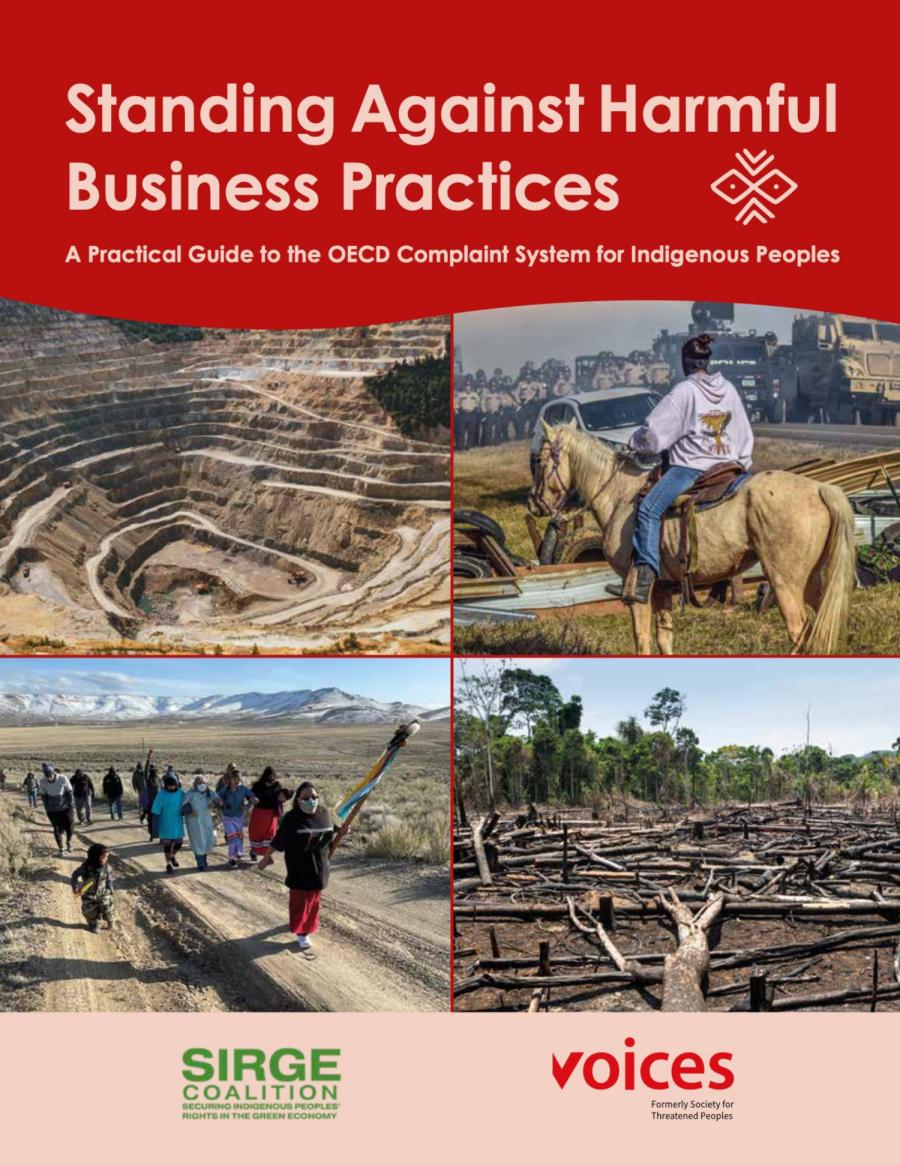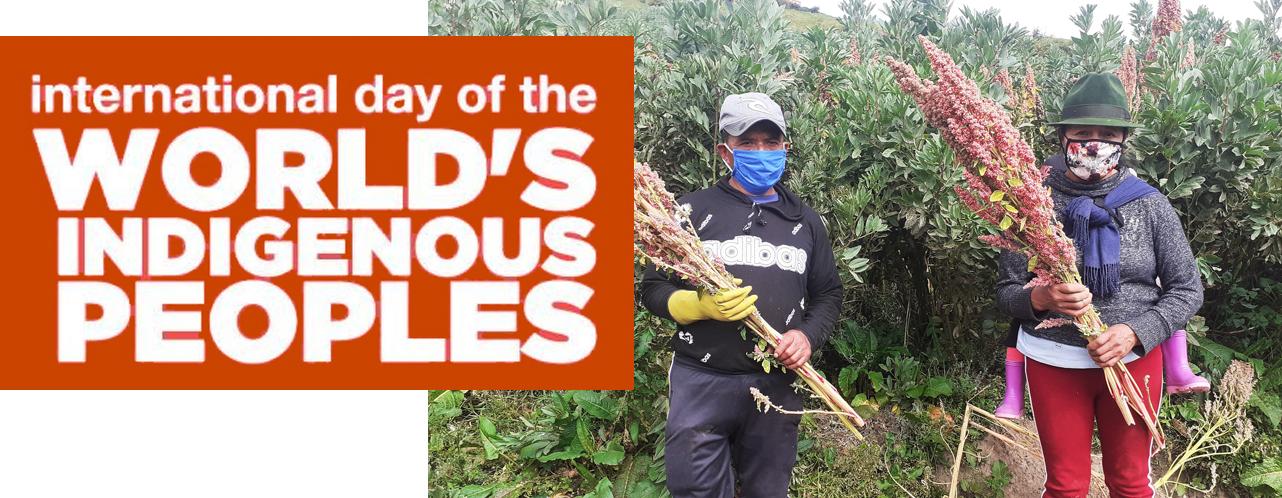
The International Day of the World's Indigenous Peoples is observed on August 9 each year to promote and protect the rights of Indigenous Peoples around the world. The date commemorates the first United Nations Working Group on Indigenous Populations meeting in Geneva in 1982. This year's theme is "The role of indigenous women in the preservation and transmission of traditional knowledge."
As we celebrate World Indigenous Peoples’ Day 2022, Cultural Survival is taking a look back at some of the top 30 wins for Indigenous Peoples over the last 2 years. From historic land back cases to strong Indigenous women in power, there has been great progress to celebrate. Take a look back with us.
January 2020: The Peruvian government created a 1.1 million hectare reserve for Indigenous Peoples living in isolation or initial contact. The Yavari Tapiche Indigenous Reserve will finally put the autonomy of sovereignty of the Matses, Remo, and Marubo Peoples above the profit of oil companies who have resisted the creation of reserves.
July 2020: The United States Supreme Court reaffirmed Muscogee Treaties, confirming that half of Oklahoma is Native land, including Tulsa which is in the Creek Nation. The case was brought to the Supreme Court by a sexual assault defendant, who argued that his case should be handled by the Federal Courts instead of the State given that the crime was committed on Indigenous treaty land. The decision means that minor criminal cases involving a native American will now be handled by Tribal Courts, and major cases will be handled by the Federal Courts.
November 2020: In a historic Supreme Court decision, the Naso Tjër Di people of Panama secured land rights to over 395,000 acres of ancestral land. They had been fighting for legal protection of this land for 50 years, and have now assured a new autonomous Indigenous province in northwestern Panama. The ruling opened the legal framework to grant Indigenous land titles on nationally protected land, as well as making progress in incorporating international human rights law.
November 2020: After 24 years in parliament, Nanaia Mahuta was appointed as New Zealand’s first female foreign minister. She is the second Māori person in the role. In 2016, she became the first woman to display a moko kauae (sacred facial tattoo) in parliament. Mahuta plans to use her diplomacy skills, as well as Māori values like manaakitanga (looking after people) and kaitiakitanga (guardianship of the environment), to represent New Zealand on the global stage.
December 2020: The United Nations declared 2022-2032 to be the Decade of Indigenous Languages. It will prioritize the empowerment of Indigenous language users and place Indigenous Peoples at the center of all planning, as based on the foundational principle of “nothing for us without us.”
February 2021: The Magpie River is the first river in Canada to receive legal personhood, following the examples of Ecuador and New Zealand. It will receive the same protection as a regular person after the irreparable damage caused by the Hydro-Québec dam. Personhood was granted after a decade of demands made by the local municipality of Minganie, the Innu Council of Ekuanitshit, the Canadian Parks and Wilderness Society and several environmental groups.
March 2021: After being confirmed as Interior Secretary by the House and Senate in the spring, Deb Haaland (Laguna Pueblo) became the first Indigenous Cabinet Minister in United States history. Haaland is from New Mexico and was one of the first Native American women elected to Congress in 2018. As Interior Secretary, she will oversee 500 million acres of public land, as well as the Bureau of Indian Affairs.
April 2021: Secretary of Interior Deb Haaland (Laguna Pueblo) announced the formation of a new Missing & Murdered Unit within the Bureau of Indian Affairs Office of Justice Services to provide leadership and direction for cross-departmental and interagency work addressing the epidemics of missing and murdered American Indians and Alaska Natives.
June 2021: The ownership of the Australian town of Jaribu was returned to Indigenous Mirarr Peoples after the mine that it was built to serve closed. The Mirarr Land Trust intends to transform the town from a diminishing mining town to a gateway to its neighboring Kakadu National Park, a hub for environmental protection and tourism.
June 2021: The Keystone XL pipeline, which would have stretched from Alberta, Canada to the United States Gulf Coast, has been officially canceled more than a decade after its planning began. The pipeline would have not only been a threat to the Ogallala Aquifer water source but also would have damaged Indigenous burial and archaeological sites. Many Indigenous protesters, advocating for Indigenous and environmental rights, were instrumental in the cancellation of the pipeline.
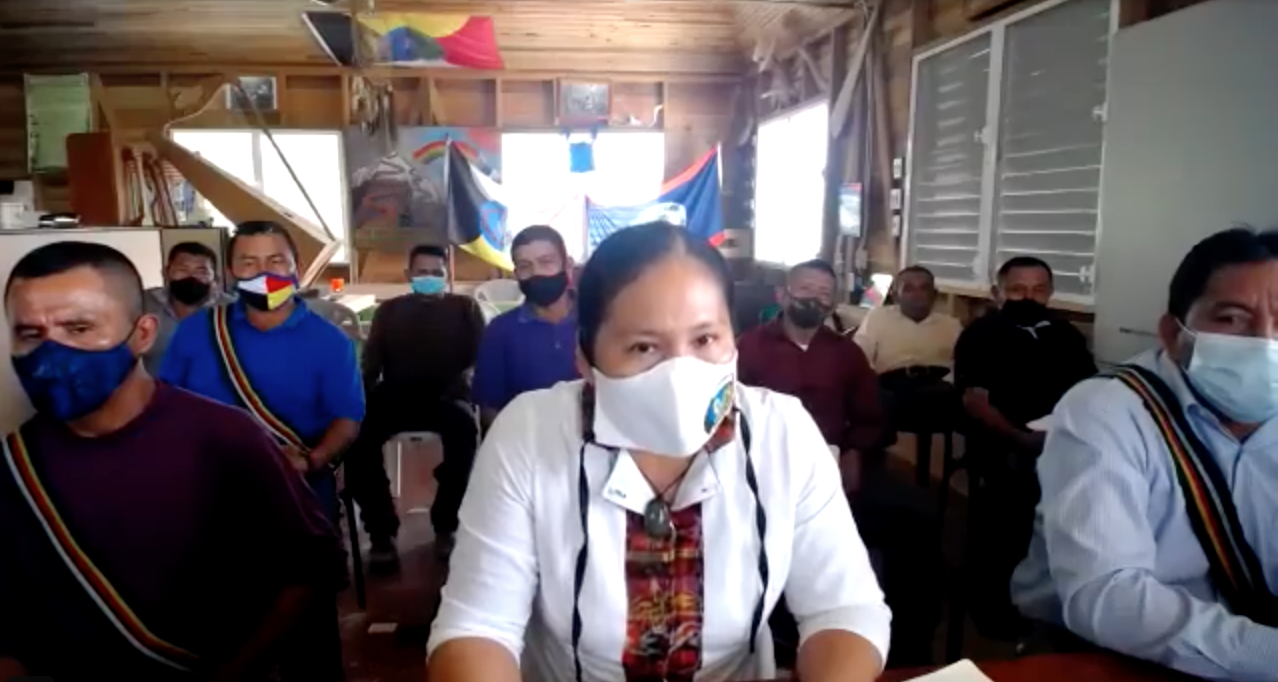
June 2021: In a landmark decision, the Supreme Court of Belize ruled in favor of Maya land rights, upholding the community’s right to their customary lands. The case— Jalacte Village vs. the Attorney General — led to the return of Maya lands that had been taken without consent. The government of Belize further paid compensation of $3.12 million USD.
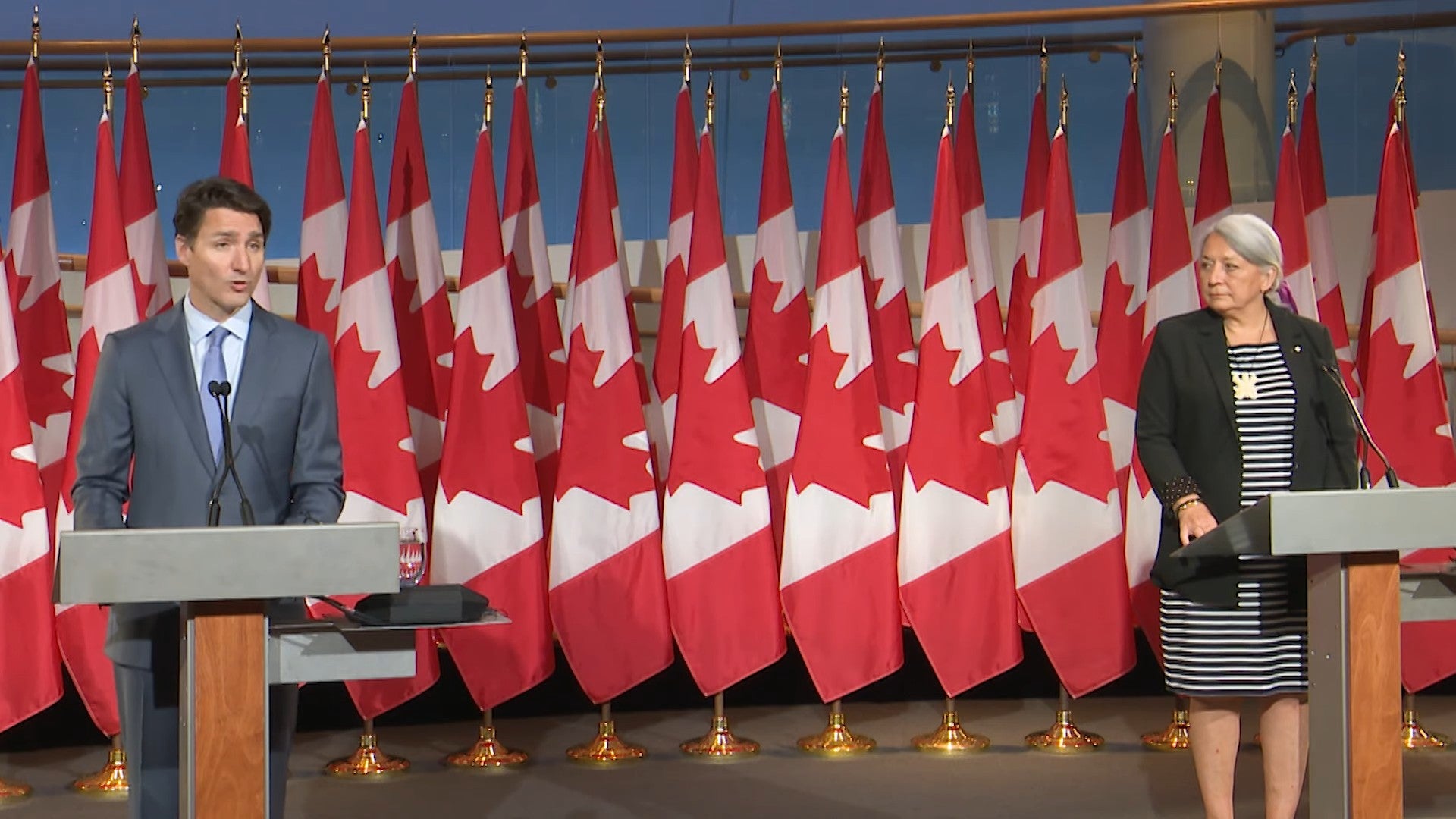
July 2021: Inuk leader Mary Simon has made history as the first Indigenous person to be named Canada’s governor general. In this position, Simon will summon Parliament and deliver speeches, as well as sign official documents and meet regularly with the prime minister.
July 2021: Elisa Loncón, a Mapuche Indigenous Peoples representative, was elected President of the Constituent Convention, which is set to draft a new constitution. She won the presidency by an overwhelming majority. Her first speech was in her native language of Mapuzungún. Recent elections in Chile to create a political body that will write the new constitution include 17 reserved seats for Indigenous candidates out of the 155 people chosen. Loncón is a strong supporter of restoring land to Indigenous Peoples, and she began her first speech as President of the Convention in her native language of Mapuzungún.
July 2021: More than five years after the assassination of Indigenous leader Berta Cáceres (Lenca), David Roberto Castillo— President of the Desarrollos Energéticos (Desa) hydroelectric company— has been found guilty of co-collaborating her murder. Cáceres fought against Castillo’s dam, which would have destroyed the sacred Gualcarque River. Many cases of violence against Indigenous activists in Honduras are never investigated. Advancements in Caceres’ case lead to new hope for those still pending justice.
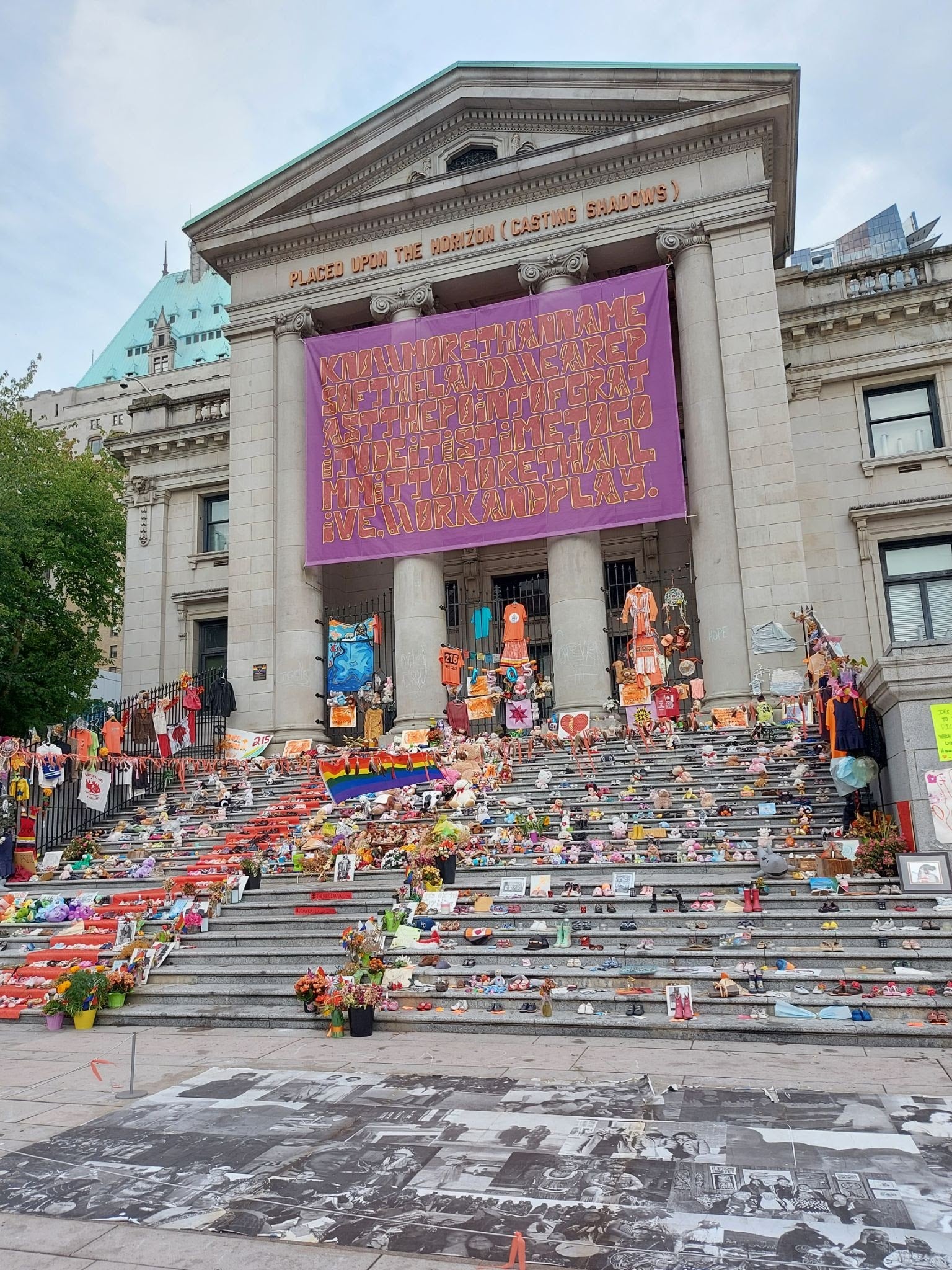
September 2021: On September 30, 2021, Canada held its first-ever observation of the National Day for Truth and Reconciliation to commemorate the missing and murdered children from residential schools and honor the healing journey of residential school survivors.
October 2021: President Biden issued the first-ever presidential proclamation of Indigenous Peoples’ Day for October 11, 2021, refocusing the federal holiday of Columbus Day toward recognition of Native Peoples.
October 2021: Two wind farms in western Norway are harming Sámi reindeer herders by encroaching on their pastures, the country’s Supreme Court has ruled. The Court also found that Traditional Sámi reindeer herding is a form of protected cultural practice.
October 2021: Dame Cindy Kiro, the first Māori woman to be named New Zealand Governor-general, was formally sworn in to the largely ceremonial role in parliament on October 21.
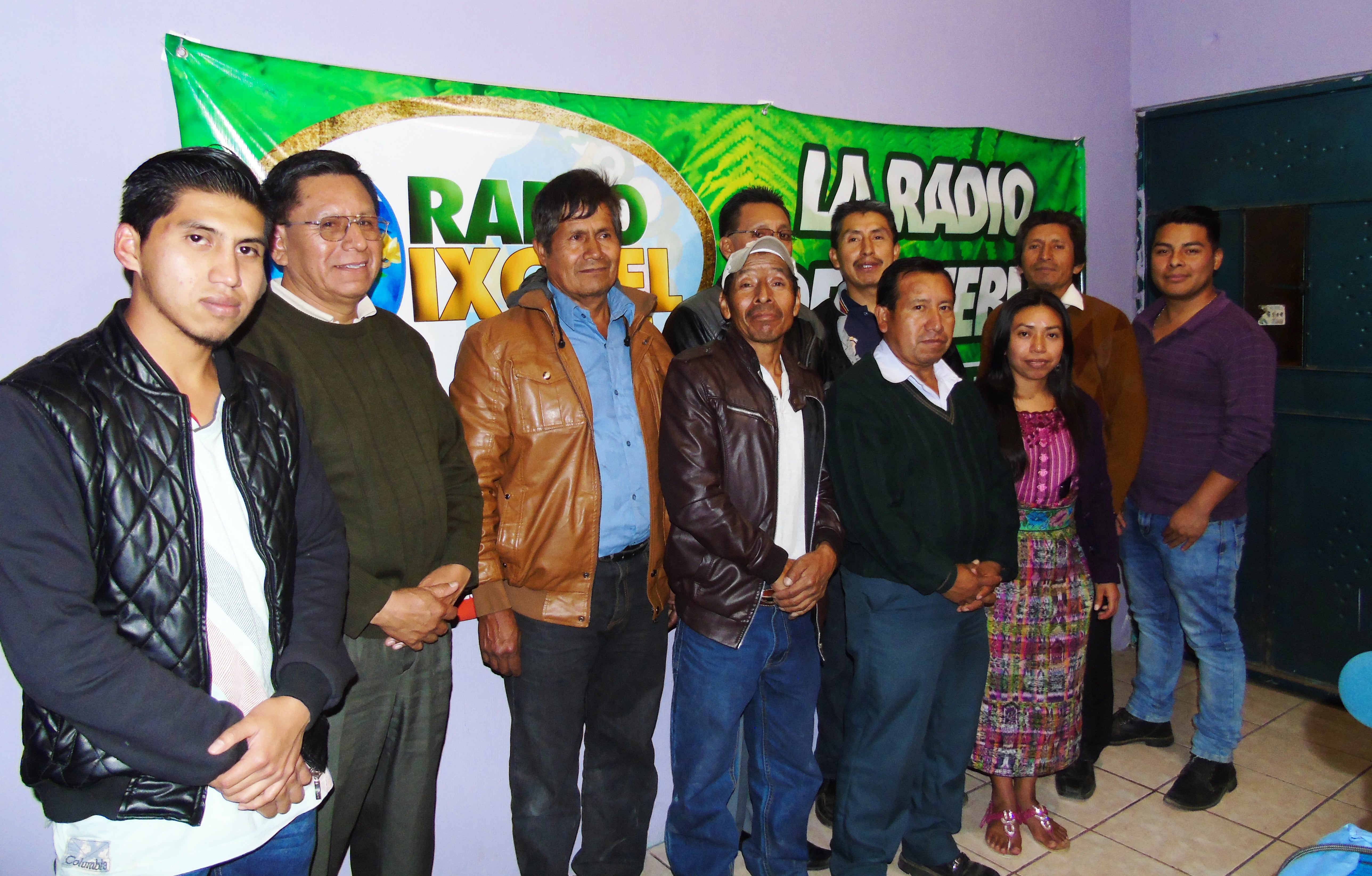
December 2021: After decades of fighting racist obstacles to radio frequency access imposed by Guatemala’s telecommunications law, and after the State of Guatemala has consistently ignored international laws regarding freedom of expression, the Indigenous community radio movement in Guatemala celebrates a recent ruling in the case Indigenous Maya Kaqchikel Peoples of Sumpango vs. Guatemala by the Inter-American Court of Human Rights declaring that the Guatemalan State is “internationally responsible for the violation of the rights to freedom of expression, equality before the law and participation in cultural life” of Indigenous Peoples. This is a historic decision affirming the rights of Indigenous Peoples in Latin America to collective and individual freedom of expression and to practice their culture without discrimination.
January 2022: The Canadian government has reached a $31 billion settlement—the largest in the country’s history—with First Nations, agreeing to give over $15 billion to Indigenous children who have been affected by the country’s child welfare system. This includes the tens of thousands of children who were stolen from their families and forced into the system. The remaining $15 billion will be used to help reform the Canadian child welfare system.
January 2022: Thirty-six Maya Achi women managed to get a Guatemalan court to convict five civil self-defense patrollers who committed sexual violence and domestic slavery against them in the 1980s. The Court sentenced Bernardo Ruiz Aquino, Damián and Gabriel to 30 years in prison. Cuxum Alvarado, Francisco Cuxum Alvarado, Benvenuto Ruiz Aquino for crimes against the duties of humanity; after more than 40 years, the women managed to start the path to justice.
March 2022: Ancestral lands in Kakadu National Park in Australia, which make up about 50 percent of the park, were returned to their traditional owners, the Limilngan/Minitja, Murumburr, Garndidjbal, Yurlkmanj, Wurngomgu, Bolmo, Wurrkbarbar, Matjba, Uwinymil, Bunidj, Djindibi, Mirrar Gundjeihmi, and Dadjbaku Peoples.
April 2022: The highest court in Finland upheld the rights of Sami Peoples to fish. The court concluded that fishing is part of Sami culture and that fishing regulations were unconstitutional, making this a landmark victory. Sami leaders hope this will have wider implications for protecting their rights to traditional hunting and gathering practices and reindeer herding.
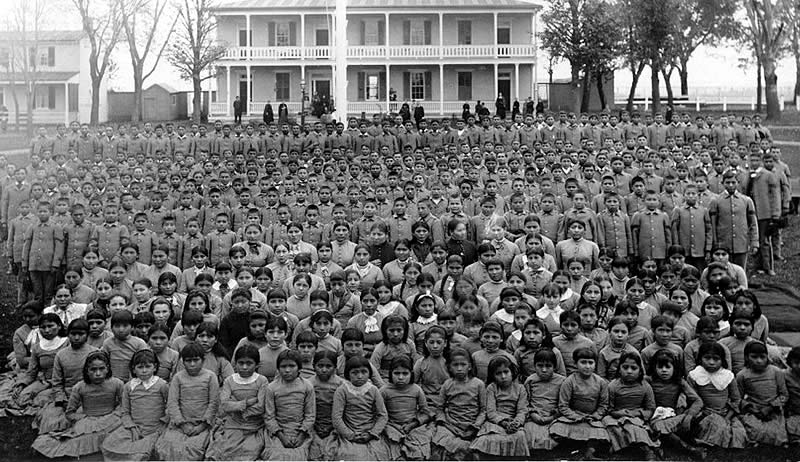
May 2022: A 106-page report by Assistant Secretary of Indian Affairs Bryan Newland (Ojibwe) documented for the first time that from 1819–1969, the federal government operated or supported 408 boarding schools across 37 states. The preliminary investigation identified marked and unmarked burial sites of Native children at 53 of those schools, and expects to find the total number in the “thousands or tens of thousands.”
May 2022: Ownership of the island of Me-Mel in Sydney Harbor, along with $43 million AUS from the New South Wales government, has been transferred back to the Eora Nation, who have had historical ties to the island for over 10,000 years.
July 2022: An agreement was reached between the Canadian government, the Assembly of First Nations, and plaintiffs in two class action lawsuits awarding $20 billion CAD to First Nations children and families harmed by discriminatory provisions of government services and the chronic underfunding of child welfare on reservations.
July 2022: On July 6, the Ponca Tribe of Indians of Oklahoma adopted a Rights of Nature Statute recognizing the “immutable rights of rivers” for two rivers that flow through their territory. In 2016, the Ponca became the first tribe in the U.S. to recognize the Rights of Nature as part of their efforts to halt fossil fuel projects on their territory.
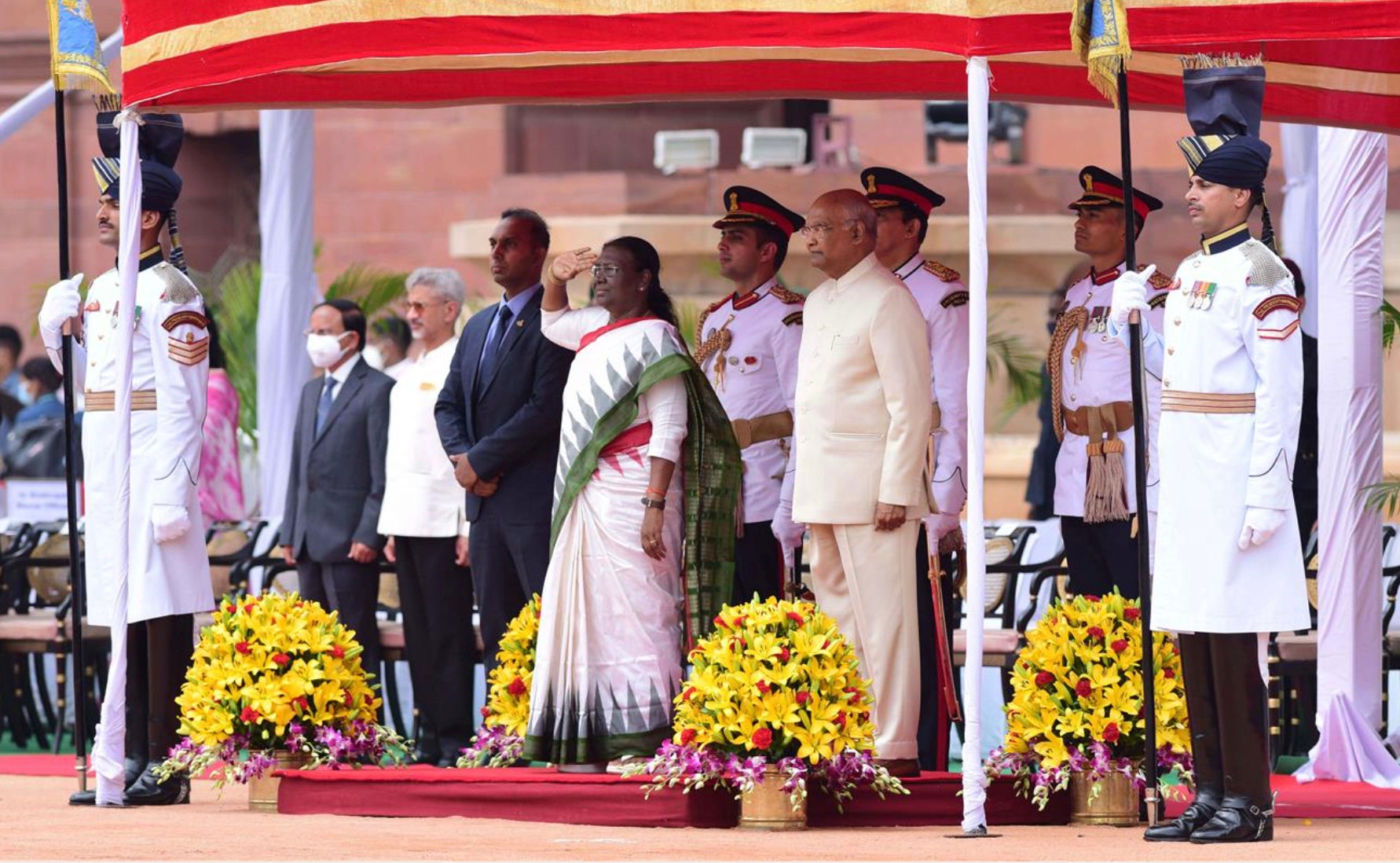
July 2022: On July 25, 2022, Droupadi Murmu was sworn in as India’s first Indigenous woman president. She is a member of the Santhal Tribal community and was born in the Baidaposi village of Mayurbhanj district. Upon being sworn in as President, she stated that her election “is proof of the fact that in India, the poor can dream and also fulfill those dreams.”
July 2022: Pope Francis traveled to Maskwacis, in Alberta, Canada, where he visited many Indigenous Peoples, including survivors of residential schools and their descendants. There, Pope Francis made an official apology on behalf of the Catholic Church and their involvement in Canada’s residential schools with the goal to eradicate Indigenous cultures. The Pope’s recent apology and acknowledgment of genocide are positive steps in the right direction, however, concrete actions need to follow for true healing and reconciliation to begin.
July 2022: Shuar community in Ecuador won a decades-long battle to protect land. The National System of Protected Areas now includes the 5,497-hectare (13,583-acre) Tiwi Nunka Forest, home to the Shuar community of El Kiim.
Cultural Survival expresses our gratitude to the Indigenous leaders, activists, elders, and all those worldwide who made these wins possible. We’re honored to continue supporting the rights of Indigenous Peoples for decades to come.
Top photo: Members of community radio station Radio Ixchel in Sumpango, Guatemala.
